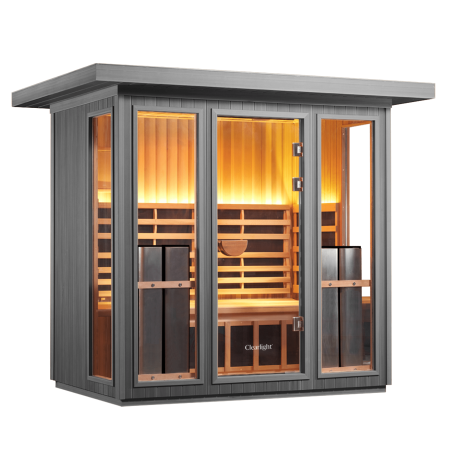This study, led by Ping-Chung Leung and colleagues, explored the combined effects of practicing Qigong in a sauna room to improve cardiovascular and mental health. Sauna therapy, which induces hyperthermia, increases heart rate, cardiac output, and blood circulation, mimicking the effects of moderate exercise. The researchers hypothesized that practicing Qigong in this heated environment would enhance the benefits of both sauna therapy and Qigong, which is an anaerobic form of exercise focused on stretching, controlled breathing, and meditation. In a small pilot study, five experienced sauna users practiced Qigong inside the sauna, and their cardiovascular responses, including heart rate and blood pressure, were monitored before and after the session.
The results showed that practicing Qigong in the sauna led to a significant increase in heart rate, about 30%–40% higher than baseline levels, while blood pressure remained stable or slightly decreased. These findings suggest that the combination of Qigong and sauna therapy enhances the body’s cardiovascular responses, potentially offering both anaerobic and aerobic benefits. The sauna’s heat facilitated better circulation and pulmonary function, while Qigong’s controlled breathing promoted relaxation and stress reduction. Overall, this study supports the idea that combining Qigong with sauna therapy can improve both physical performance and mental well-being, offering a holistic approach to fitness and relaxation.





